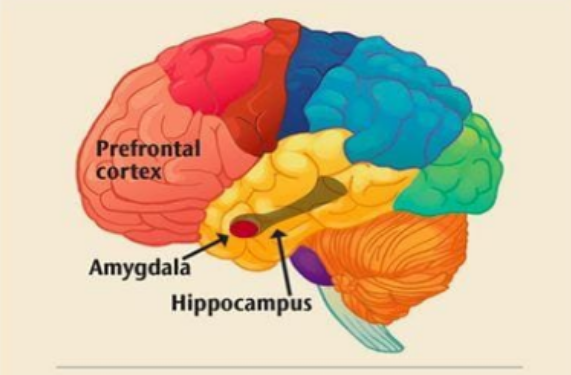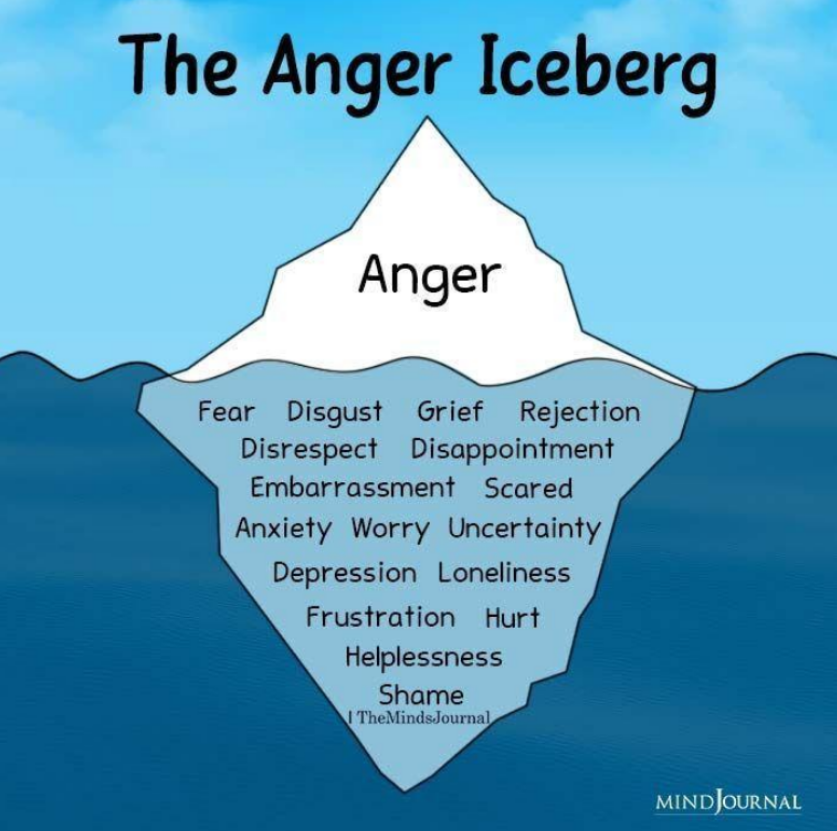Anger And The Brain: A Battle Between Emotion And Reason
- Mary Biswas
- Jul 20, 2025
- 4 min read
Updated: Jul 23, 2025
Anger is universal. It is one of the many feelings that makes us human. Many a times we find ourselves in situations that feels like our brain has been pricked with hot needles or we are being boiled in a tub of rage.
So what really happens biologically when you are angry.
When you’re provoked into feeling angry, your body generates a fight or flight response, your heartbeat gets faster, your muscles contract, your facial expression and body language change. Unlike fear, where your first reaction may be to flee, anger is associated with a desire for confrontation. Your attention becomes focused on the threat, instinctively preparing for physical conflict.
We have all read about the parts of brain in our biology classes at school. The forebrain houses the limbic system which has several interconnected structures and one of them is amygdala. The amygdala in the temporal lobe is primarily responsible for regulating emotions especially fear and anger. So yes amygdala is the reason why some of us might be over sensitive and break down easily. It has a tendency to overreact to things that are actually completely harmless.
Another structure located right behind your forehead is the pre frontal cortex. It is responsible for higher level thinking and control.

When your body experiences a serious threat or danger the amygdala acts like an alarm and sends signal to the hypothalamus which prepares the body to take action. The prefrontal cortex is like the mature friend of the group who tries to stop a fight. It basically tries to stop you from things that you might regret later but the emotional amygdala is evolutionarily older so your pre frontal cortex is already lagging in the race. Finally to assure survival (like in the days where they used to hunt), your pre frontal cortex is shut down and your emotional self rules it. This is when you could say almost anything that comes to your mind in an argument. This is when you send that harsh text to your friend or say something offensive to your teacher, boss or parents. Now your pre frontal cortex appears trying to catch up and hits you with “why did I even do that”. So whenever there is a stimulus the amygdala reacts first triggering emotional response which can cause impulsive reaction and the pre frontal cortex steps in later to help you assess whether the reaction was appropriate. This is also why most people fail to control their outrage and feel guilty later.
This activity of amygdala helped the early humans survive from predators. Now the problem is that our brains don't differentiate between serious threats (running from a prehistoric predator) and less threatening anger triggers (another car driving too slowly in the passing lane). It fires up the same structures and neural pathways, which means we sometimes react in ways that seem out of proportion to the situation.
There can be a lot of things that triggers anger in brain. It can range from the most basic things like why does this person keep his room so dirty or why is he chewing his nails again, to global problems like racism, sexism, injustice. It can be due to someone’s insecurities, or when people don’t listen to you or you are having a bad day. I am sure each one of us can recall thousands of situations when we got mad at things.
People express anger in different ways. Some just blurt it out on the person which they might regret later or be relieved that they have finally voiced their thoughts. Some prefer writing them down. Some start exercising or doing work that keeps their find off the topic. Many of us google how we can control ourselves and take advises like drinking water or punching a pillow. These are some healthy ways. Then there are shockingly harsh ways like yelling, violence, throwing things abuse. Such ways should be taken care of immediately. People with uncontrolled anger issues should try therapy or speaking to someone. Not only them everyone should try to have some self control. One can practice activating the pre frontal cortex. A five second pause every time you get angry can reduce amygdala’s grip. Try breathing slowly and deeply. Imagine the consequences. Try putting yourself in the other person’s shoe and empathise with them. Reinterpreting the situation can weaken the emotional charge behind anger.
They said that the passage of time heal all wounds but scars remain. People can be hurtful sometimes when they are angry. The price we pay for overreacting can vary. This leaves a stain on their bonding with others. Anger can cause emotional stress. Over time this leads to broken communication and collapse of friendships, relationships and family bonding. Frequent surge of anger can lead to hypertension, weakened immune system, hormonal imbalance, stress, headaches and heart diseases.
So is anger really that bad?

The answer is no provided it is expressed appropriately. It is a powerful emotion. While it can activate aggressive behaviour it does not necessarily have to. Anger often points to injustice, hurt or frustration that requires attention. Many positive changes in the society like civil rights and equality began with justified anger. It can strengthen boundaries and help people stand up for themselves.
Why anger is a secondary emotion?
If you probe deeper anger serves a protective function. It can protect us from more vulnerable feelings like hurt, fear, shame or sadness. It acts like an armour to cover up these raw emotions.
Anger has been compared to tip of an iceberg, there’s often more hiding underneath.
So instead of suppressing it maybe try listening to what it says. Reflecting and practicing mindfulness of your emotions can help you determine what you are actually feeling. Our feelings require our acknowledgement. Only then we can decide what’s good for us to grow and heal mentally.






Comments